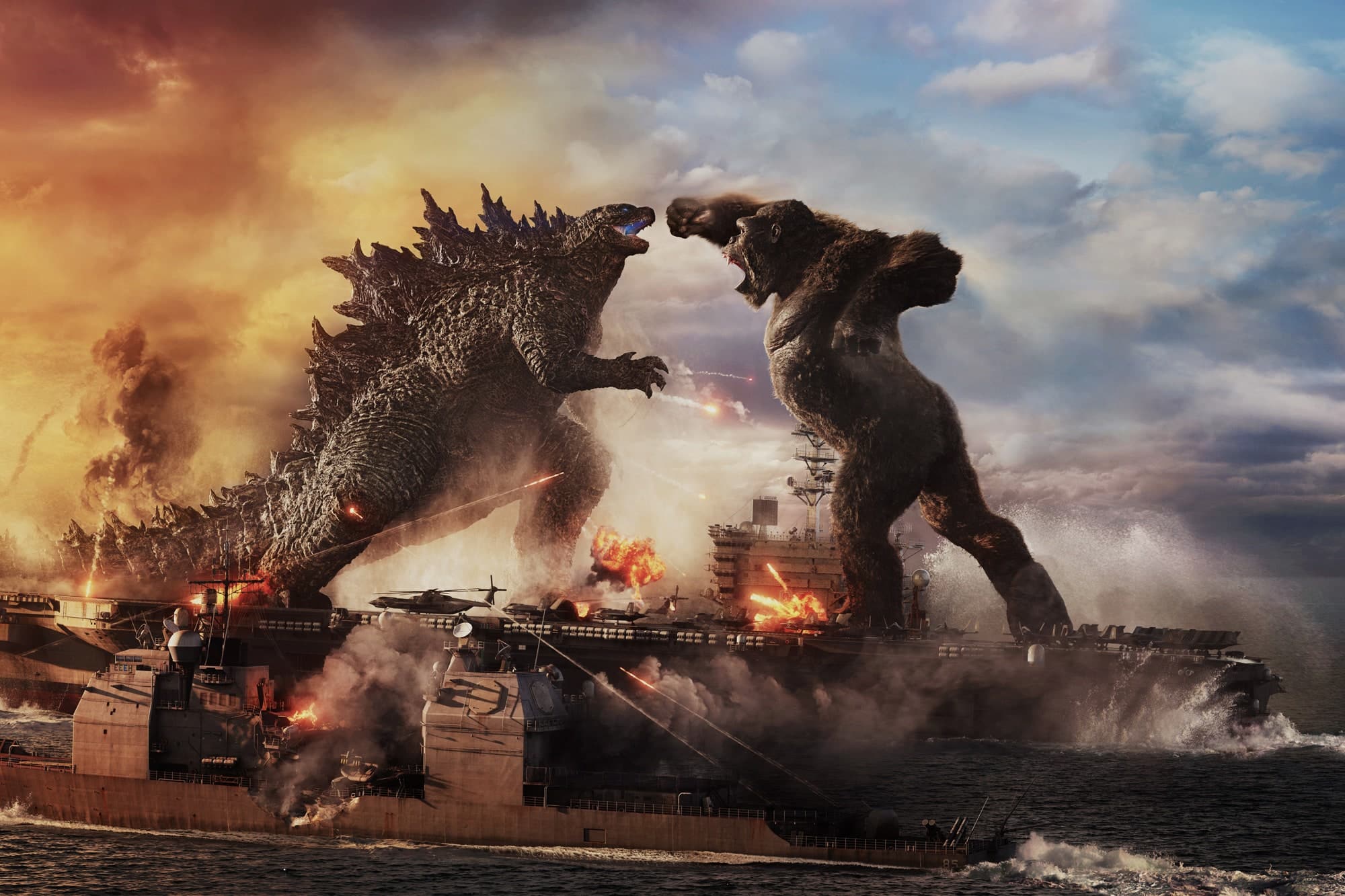If you’ve spent any time on the internet lately, you’ll have seen reviews of Godzilla vs. Kong pointing out that the human drama isn’t any good. I’m sure you’ll have also seen a barrage of comments from fans saying something to the effect of, “this isn’t why we watch these films!”, or, “you don’t know the genre! Godzilla movies are about monsters fighting!”, or even, “it’s monsters fighting, of course it’s not Shakespeare!”
I find myself agreeing with the consensus of many critics in that, yes, the human drama is awful, but I find the fan reaction particularly frustrating.
Godzilla films can and have repeatedly offered great character drama, thematic weight, lofty ideas, and earnest storytelling. Be it the post-war national identity conflict that characterises the 1954 original, or the gentle portrayal of unlikely friendships in Godzilla vs. Megalon (1973), the idea that these films uniformly don’t deliver on good storytelling is silly at best, if not condescending at worst.
It’s not unreasonable to want or expect more from these films when we know that better things are possible. Even discounting the rich history of the Toho films, Gareth Edwards’ 2014 Godzilla, while with its own issues, was a smart and stylish film which understood that meaning could be drawn from massive monsters. Seven years later and we’re left with Godzilla vs. Kong, a film which seems to indulge in every crude stereotype placed on these films by decades of critical and fan misunderstanding.
In the film, Kong is contained on Skull Island. Meanwhile, Godzilla destroys a facility belonging to Apex, a shady company with an Elon Musk-style CEO. The folks at Apex appeal to a scientist who wants to explore the ‘Hollow Earth’ (something briefly mentioned in the last few ‘MonsterVerse’ films that really could’ve done with more thought), the apparent home of the monsters. The scientist agrees and decides that Kong must be their guide. So, Kong is taken via ship to the Arctic. Along the way, Godzilla shows up to fight him because there can’t be two apex predators at once. Then the rest of the film happens.
Characters come and go, speaking lines designed to move the plot along and little else. It’s all very perfunctory. The acting befits the function.
As with the equally dreadful Godzilla King of the Monsters (2019), the script is peppered with quips and jokes that don’t land. Thankfully, there isn’t a crass STD joke as in King of the Monsters, but Kong is referred to as a “monkey” by one character so often in the space of about twenty minutes that you have to suspect the writers really thought it was a good joke. Alas.
Godzilla vs. Kong isn’t as immediately offensive as King of the Monsters in the sense that it doesn’t feature a US military base named after a nuclear test that directly led to the death of one Japanese fisherman and contributed to the permanent dislocation of the residents of Bikini Atoll (but the Castle Bravo test helped inspire portions of the original Godzilla, so it’s a Hip and Cool reference, right?), but that isn’t to say it’s without its issues.
Ken Watanabe’s Dr. Serizawa (inspired by the character of the same name from the 1954 film) had an interesting role in the 2014 film before he was diminished and killed in King of the Monsters – in a tasteless scene which saw him revive Godzilla with a nuclear blast. In Godzilla vs. Kong, his son (?) appears as one of the henchmen of Apex, and has little to do except stand around and look evil. If he had been a nameless bad guy, maybe it wouldn’t have mattered. But by giving him the name of the one character who, in the 2014 film, vocally embodied an anti-nuclear sentiment, Godzilla vs. Kong fulfils the complete stripping of character motivation, personality, and depth. It’s a gestural attempt at continuity.
Maybe I was wrong to want so much more from Godzilla vs. Kong considering its director, Adam Wingard, actively said that “politics are out the window” in a recent interview for Total Film. Despite the few flaws of Gareth Edwards’ Godzilla (reframing US nuclear tests as attempts to kill Godzilla, instead of part of the Cold War arms race, was clumsy at best), that film gave me high hopes for how its sequels would develop. Unfortunately, this series took such a nosedive into obnoxious excess that it’s hard not to think about what might’ve been.
One final thing. I like fun films. I think there are a great number of the Toho films which are fun and lighthearted, like Ebirah Horror of the Deep (1966), or Son of Godzilla (1967). But what these films also have are endearing characters, arresting stories, visual flare, memorable soundtracks, and meaning. I don’t think Godzilla vs. Kong has any of those things.
The original 1962 King Kong vs. Godzilla was explicitly made as a comedy. It’s a fun, sharp, and witty film that cuts to the core of Japan’s contemporary TV culture and the absurd economic growth of its time. Fun films can be both lighthearted and meaningful. That’s why I can’t buy the defence that says, “it’s just a fun monster movie!” for Godzilla vs. Kong. This film could have been both, but it isn’t.
Skip this and watch the 1962 film instead.
